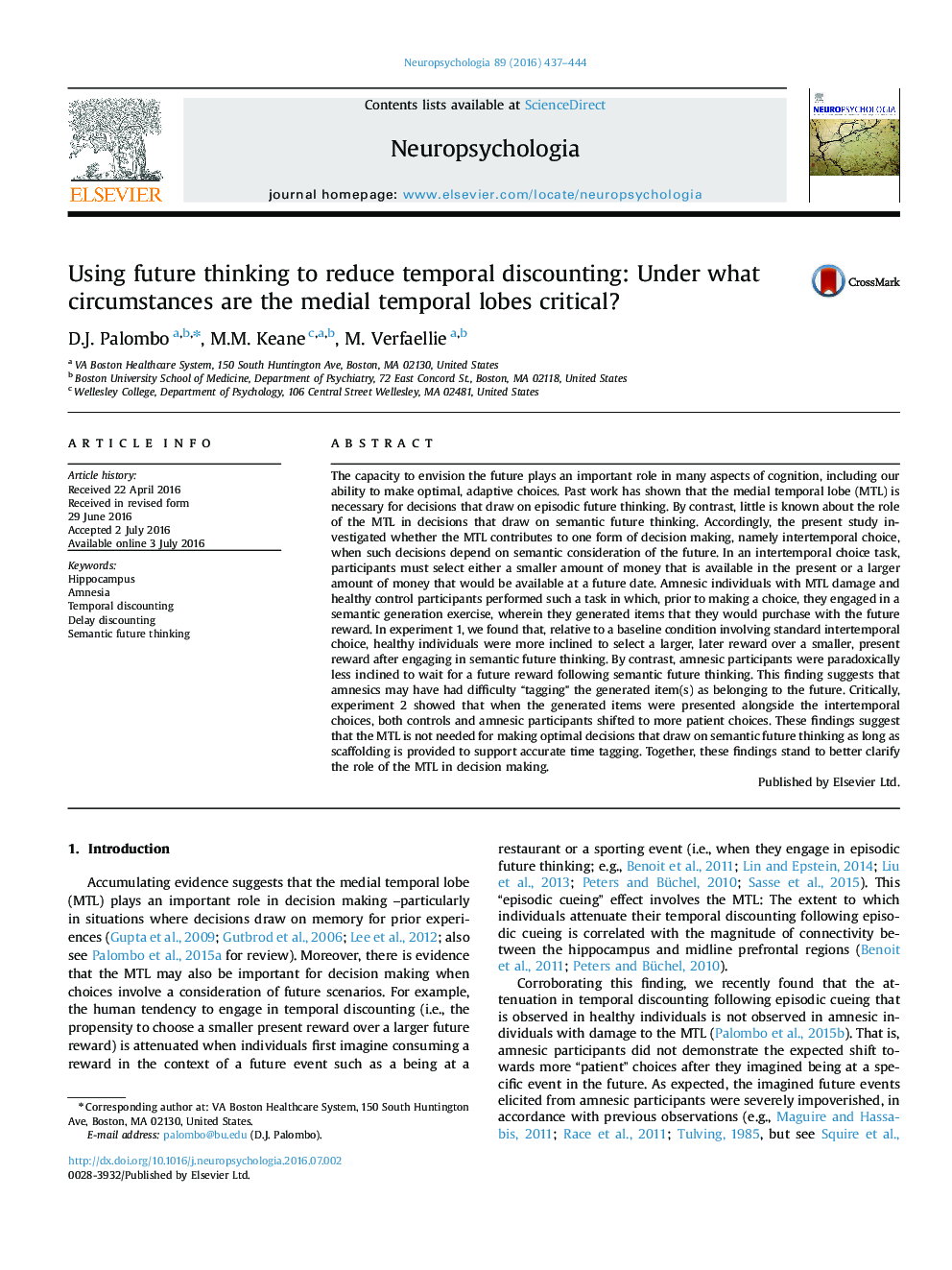| کد مقاله | کد نشریه | سال انتشار | مقاله انگلیسی | نسخه تمام متن |
|---|---|---|---|---|
| 7318887 | 1475565 | 2016 | 8 صفحه PDF | دانلود رایگان |
عنوان انگلیسی مقاله ISI
Using future thinking to reduce temporal discounting: Under what circumstances are the medial temporal lobes critical?
ترجمه فارسی عنوان
با استفاده از تفکر آینده برای کاهش تخفیف های زمانی: در چه شرایطی لوب های محیطی مهم هستند؟
دانلود مقاله + سفارش ترجمه
دانلود مقاله ISI انگلیسی
رایگان برای ایرانیان
کلمات کلیدی
هیپوکامپ، آمنیزیا، تخفیف موقتی، تخفیف تاخیر، تفکر آینده معنایی،
موضوعات مرتبط
علوم زیستی و بیوفناوری
علم عصب شناسی
علوم اعصاب رفتاری
چکیده انگلیسی
The capacity to envision the future plays an important role in many aspects of cognition, including our ability to make optimal, adaptive choices. Past work has shown that the medial temporal lobe (MTL) is necessary for decisions that draw on episodic future thinking. By contrast, little is known about the role of the MTL in decisions that draw on semantic future thinking. Accordingly, the present study investigated whether the MTL contributes to one form of decision making, namely intertemporal choice, when such decisions depend on semantic consideration of the future. In an intertemporal choice task, participants must select either a smaller amount of money that is available in the present or a larger amount of money that would be available at a future date. Amnesic individuals with MTL damage and healthy control participants performed such a task in which, prior to making a choice, they engaged in a semantic generation exercise, wherein they generated items that they would purchase with the future reward. In experiment 1, we found that, relative to a baseline condition involving standard intertemporal choice, healthy individuals were more inclined to select a larger, later reward over a smaller, present reward after engaging in semantic future thinking. By contrast, amnesic participants were paradoxically less inclined to wait for a future reward following semantic future thinking. This finding suggests that amnesics may have had difficulty “tagging” the generated item(s) as belonging to the future. Critically, experiment 2 showed that when the generated items were presented alongside the intertemporal choices, both controls and amnesic participants shifted to more patient choices. These findings suggest that the MTL is not needed for making optimal decisions that draw on semantic future thinking as long as scaffolding is provided to support accurate time tagging. Together, these findings stand to better clarify the role of the MTL in decision making.
ناشر
Database: Elsevier - ScienceDirect (ساینس دایرکت)
Journal: Neuropsychologia - Volume 89, August 2016, Pages 437-444
Journal: Neuropsychologia - Volume 89, August 2016, Pages 437-444
نویسندگان
D.J. Palombo, M.M. Keane, M. Verfaellie,
